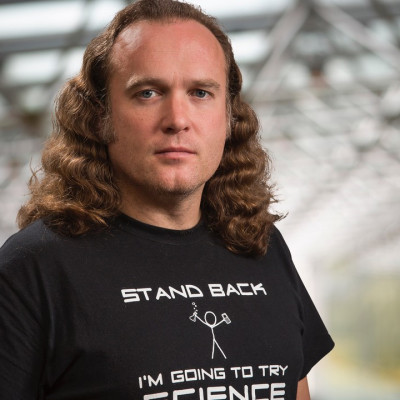Distinguished Online Seminar Series
Online Only
Thursday,
Jul 9, 2020 at 2:00 PM EDT
{
"name":"Distinguished Online Seminar Series",
"description": "https:\/\/ticketfi.com\/event\/3935\/distinguished-online-seminar-series\n\nGenerating Quantum Microwaves using Superconducting Circuits\n\n \nMicrowave systems are a central part of modern technology, with major applications including wireless communication and radar. In recent years, microwave circuits and systems have also become leading platforms in the development of quantum computing, sensing, and communication systems. For instance, the quantum processors being developed by large companies such as IBM and Google are superconducting microwave circuits which are controlled and readout by microwave photons. Nonclassical states of light, at both optical and microwave frequencies, are also being developed and applied for next-generation communication and sensing applications. These important applications and others have driven great interest in developing sources of nonclassical microwaves. Here we present a series of experiments that take important steps towards developing practical quantum sources in the microwave regime and applying them to real-world applications. In the first experiment, we use a superconducting parametric cavity to produce tripartite entangled states of propagating microwave light. The technique developed can be easily extended to more modes. In the second experiment, we demonstrate a single-microwave-photon source that allows the photon wave packet to be shaped to optimally match the requirements of a quantum receiver. This experiment used a novel approach: we were able shape the photons by modulating quantum vacuum fluctuations in both space and time. We conclude with a proof-of-principle demonstration of using quantum microwaves to enhance the sensitive of radar systems, using a protocol we call quantum-enhanced noise radar.\n\nPlease click the link below to join the webinar:\nhttps:\/\/us02web.zoom.us\/j\/85634499446?pwd=aGprMEdiMjhwaVFQVVJBMkV6VEJsUT09\nPassword: 563220\n",
"startDate":"2020-07-09",
"endDate":"2020-07-09",
"startTime":"14:00",
"endTime":"15:00",
"location":"",
"label":"Add to Calendar",
"options":[
"Apple",
"Google",
"iCal",
"Microsoft365",
"Outlook.com",
"Yahoo"
],
"timeZone":"US/Eastern",
"trigger":"click",
"inline":true,
"listStyle":"modal",
"iCalFileName":"invite.ics"
}
Event Details
Generating Quantum Microwaves using Superconducting Circuits
Microwave systems are a central part of modern technology, with major applications including wireless communication and radar. In recent years, microwave circuits and systems have also become leading platforms in the development of quantum computing, sensing, and communication systems. For instance, the quantum processors being developed by large companies such as IBM and Google are superconducting microwave circuits which are controlled and readout by microwave photons. Nonclassical states of light, at both optical and microwave frequencies, are also being developed and applied for next-generation communication and sensing applications. These important applications and others have driven great interest in developing sources of nonclassical microwaves. Here we present a series of experiments that take important steps towards developing practical quantum sources in the microwave regime and applying them to real-world applications. In the first experiment, we use a superconducting parametric cavity to produce tripartite entangled states of propagating microwave light. The technique developed can be easily extended to more modes. In the second experiment, we demonstrate a single-microwave-photon source that allows the photon wave packet to be shaped to optimally match the requirements of a quantum receiver. This experiment used a novel approach: we were able shape the photons by modulating quantum vacuum fluctuations in both space and time. We conclude with a proof-of-principle demonstration of using quantum microwaves to enhance the sensitive of radar systems, using a protocol we call quantum-enhanced noise radar.
Please click the link below to join the webinar:
https://us02web.zoom.us/j/85634499446?pwd=aGprMEdiMjhwaVFQVVJBMkV6VEJsUT09
Password: 563220
Speakers
Location
Instructions will be sent out via email after registration.
Tickets
Type |
Price |
|---|---|
|
ECE Online Seminar Series |
Free |
Organizer Details

Department of Electrical and Computer Engineering
Electrical and Computer Engineering (ECE) is Waterloo’s largest academic department, with over 2,500 students, 93 full-time faculty members and 50 support staff. In addition to offering undergraduate and graduate programs in electrical engineering and computer engineering, ECE provides academic expertise and support to Waterloo’s multidisciplinary mechatronics, nanotechnology, and software engineering programs.
Our research activities cover a wide range of fields, from high-voltage engineering and sustainable energy to breakthroughs in wireless technology that will enhance communications across our global society. Our faculty members and students are creating low-cost digital x-ray imagers to combat tuberculosis in developing countries, and building real-time embedded systems that will advance the design and reliability of consumer and industrial products.




